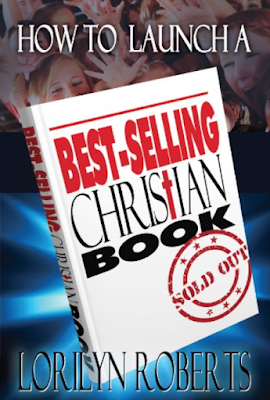Marketing is really a game. It’s a big game made up of players, managers, owners, referees, commentators, and the “crowds” that watch, whether it’s in a stadium, in the galley, in the stands, or in a gymnasium. Somewhere everybody fits. Those that don’t enjoy sports, well, I guess you just miss the game.
But let’s pretend you are a sports fan even if you aren’t. I use Lebron James as an example because he is a marvelously successful basketball player. He has done it all—except one thing that he wants more than anything else. He wants to win an NBA championship.
Why hasn’t he done that yet? After all, he’s been a professional basketball player now for years. Were all the naysayers right?
Even the best basketball player in the world can’t win a championship all on his own shoulders. When Lebron James was with the Cleveland Cavaliers, he tried. He did everything in his power to make it happen. He came close, but in the end he failed.
As I am writing this, the Miami Heat is playing the Chicago Bulls for a bid at the championship. I don’t know who will win—I am pulling for Miami for Lebron’s sake, even though I really like Joakim Noah for the Bulls (He showed up at my daughter’s nine-year-old birthday party and surprised us all.
I have captioned hundreds of games in various sports, and afterwards, the reporter usually interviews the most valuable player and the coach. He will also interview the losing coach and one of the best-losing players if time permits. It’s always interesting to hear what each coach says, and I especially love to hear the players’ thoughts.
After the game, all the reporters from the various sports news agencies will gather in a press room, and the star players and coaches will sit at a long table. The press conference often includes a bunch of “stupid” questions. Usually, with grace, the players and coaches will endure the battery, probably remembering that paycheck (in the pros), and those in college get a taste of the limelight.
But for those teams who are successful, it goes so much deeper than that final winning shot. It goes back to hours of practice and sacrifice; learning to play together as a team, the quirks of fellow teammates, what makes them tick and what ticks them off; and encouraging each other on how to make the other person’s game better. It’s about “dying to self” and embracing the concept deep down that it’s not “all about me.” And sometimes you have those phenomenal athletes like Tim Tebow who openly give the glory to God for their success.
How does this tie into the John 3:16 Marketing Network? Each author who has joined the network will admit to the dream of wanting to be a best-selling author. And in the John 3:16 Marketing Network, this is achievable for an unknown author in subcategories. It has happened on Amazon several times in the eight months we have been in existence.
But I want to remind the reader that the ultimate goal of the network is to bring glory to God through promoting a Christian worldview in the best-seller categories on Amazon, Barnes & Noble, or the New York Times. If we remember the ultimate goal is to glorify God, we can have a “winning team.”
That means we rejoice when someone else wins an award, snags a contract, receives a glowing review, or achieves something for the first time he or she never thought possible. We die to ourselves, not wishing it was us instead. God has a path for each one of us.
As a Body of Authors, we can help each other to achieve success on whatever path God sets before us. For some, that might mean selling only a few hundred books. For others, that might mean selling thousands. The outcome is not ours to control. We unselfishly commit our way to being part of a winning team, not counting the costs in personal sacrifice, but the ultimate cost of winning souls. That is the real game in Christian marketing.
It’s not always the outcome that matters, but the process through which we achieve it. If we focus on the outcome and disregard relationships as we strive for that elusive finish line, we probably won’t succeed. It’s just too hard. Winners have learned they need others’ help to succeed. This is the philosophy behind the John 3:16 Network.
God will return tenfold what you give out if you don’t keep score. He doesn’t forget. Think about all the people who have helped you and you weren’t in a position to return the favor.
The John 3:16 Marketing Network is about a lot more than selling books. It’s about being a winner - dying to self, caring about others, and encouraging each other in the journey. With the right attitude and the gifts God has given us, I have no doubt that many in the John 3:16 Marketing Network will achieve great success as far as book sales.
But there are also other kinds of success not measured in dollars and cents—in relationships, networking, and gaining knowledge and skills.
I don’t want to walk away from the marketing game because it’s too hard. I don’t want to sit in the stands watching others sell their books while I languish because I don’t know how. I don’t want to be stuck on the bench because I am injured—whether it’s my hurt feelings or pride that has tainted my attitude and made me selfish. And I don’t want to be a commentator finding fault with everything someone else has done wrong. I don’t want to be a referee—I just want to play. And those commentators out there—I can hear it from the naysayers. They probably think I am just a little crazy. Well, guess what? My kids would probably agree with you (but they love me anyway).
Here we are all winners. We have taken that first step in successful marketing—networking.




















.jpg)